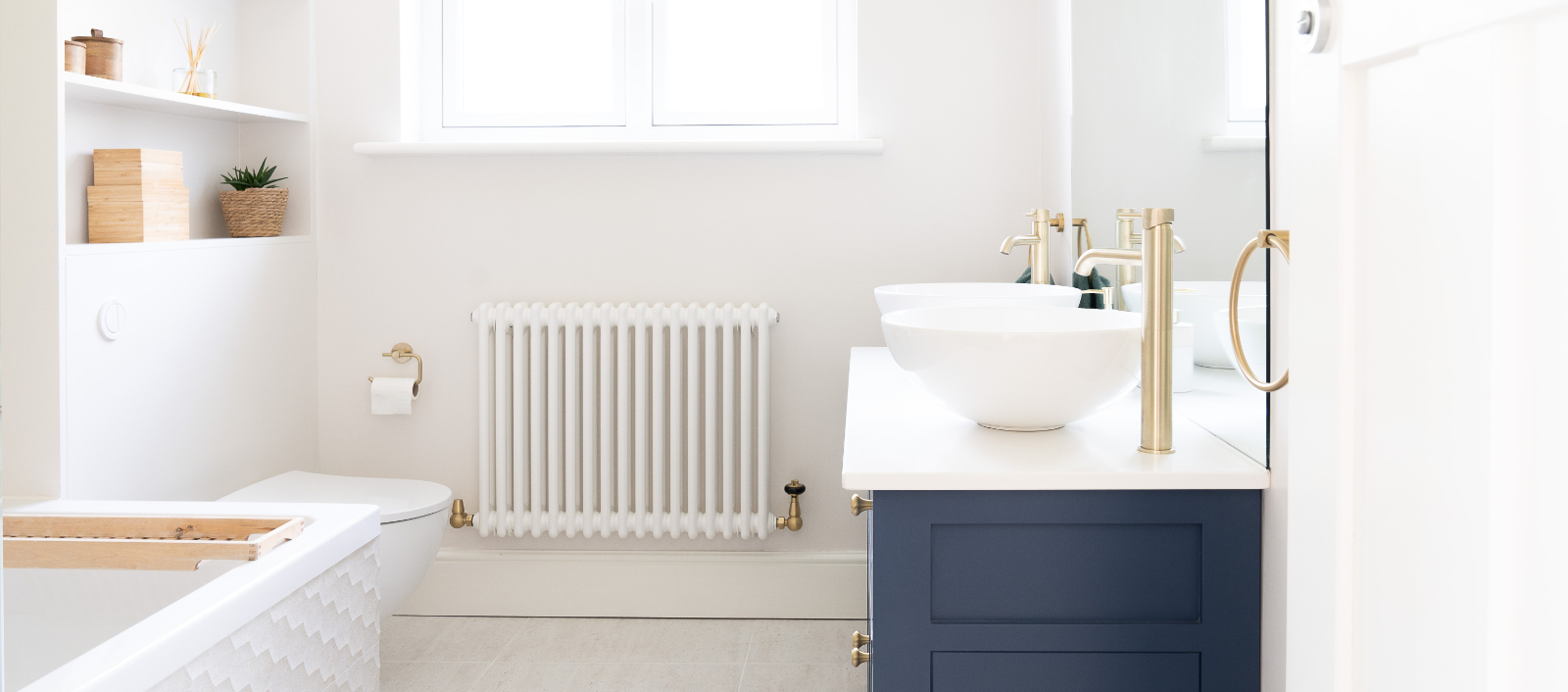Air Source Heat Pumps (ASHP)
What is an Air Source Heat Pump?
An air source heat pump is a low-carbon heating source. It uses a refrigeration cycle to move heat from the air outside and transfers it as useable heat in your home.
Air source heat pumps, like boilers, are a heat source. As such, they ideally need to be carefully designed into well-insulated, airtight homes to ensure optimum efficiency.
There are two main types of air source heat pump:
- Air to water heat pumps are used in wet central heating systems to heat radiators, underfloor heating and hot water.
- Air to air heat pumps are perhaps better known as air conditioning, and heat the air directly. This will include some level of air movement and noise as you'd expect from an air conditioning unit.
As a company, we deal with air to water systems only.
How Does an Air Source Heat Pump Work?
If you're wondering how do heat pumps work, then it's first important to note that air source heat pumps work in a very different way to boilers. An air source heat pump does not create heat — it simply moves it from one place to another through the vapour compression cycle (or refrigeration process) to make it more useable.
Heat from the air gets absorbed into a fluid, which causes it to ‘boil’ and become a gas. The gas is then compressed, raising its temperature. The higher temperature is then transferred into the heating system (i.e. the radiators or underfloor heating).
Discover how air source heat pumps work with this video from the Energy Saving Trust:
Do Air Source Heat Pumps Need Electricity?
Yes, like ground source heat pumps, electricity is needed to power an air source heat pump.
The efficiency, or the measure of the heat energy output per kW of electricity, is stated as the COP (Coefficient of Performance) or SCOP (or Seasonal Coefficient of Performance — the SCOP is the average COP over a defined period of time such as a year).
For example, a SCOP of 3.2 means that for every 1kW of electricity, 3.2kW of heat is generated.
However, electricity could be provided solar PV (together with a battery for storage), meaning that it's possible to use an air source heat pump off grid.
What are the Advantages of Air Source Heat Pumps?
It is essential to design and specify the system correctly and ideally the insulation, airtightness and emitters (typically underfloor heating or carefully sized radiators) of the property should be optimised, to allow you to get the most out of your air source heat pump.
There are many benefits to installing an air source heat pump, including:
- Unlike a gas boiler, an air source heat pump does not produce carbon when operating. While they do use electricity, ASHPs can be combined with solar PV panels or a renewable/green energy tariff for clean electricity.
- In the right context, air source heat pumps have comparatively low running costs, especially when compared with off-grid fuels such as propane, oil or direct electric heating.
- The outdoor unit takes up less space as compared to an above-ground oil or LPG tank.
- Air source heat pumps partner well with underfloor heating.
- There are certain grants available the offset the costs of installing an air source heat pump, such as the Boiler Upgrade Scheme.
- Some models can also be used for cooling a home, but you will need to weigh up heat pumps vs air conditioning before opting for this solution.
To get more information on servicing or installation, please get in contact via the form in 'Contact Us'


